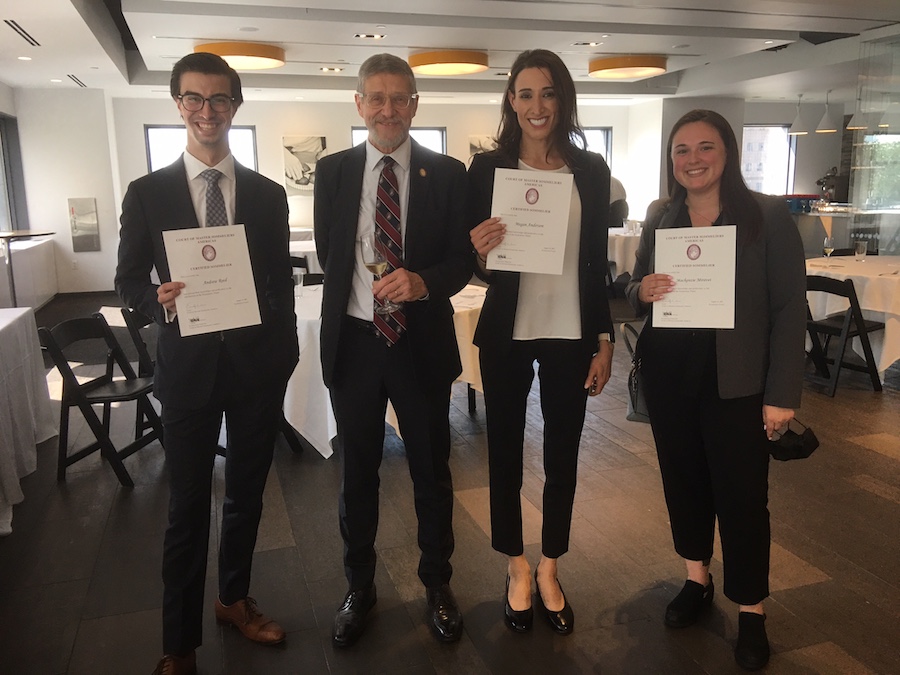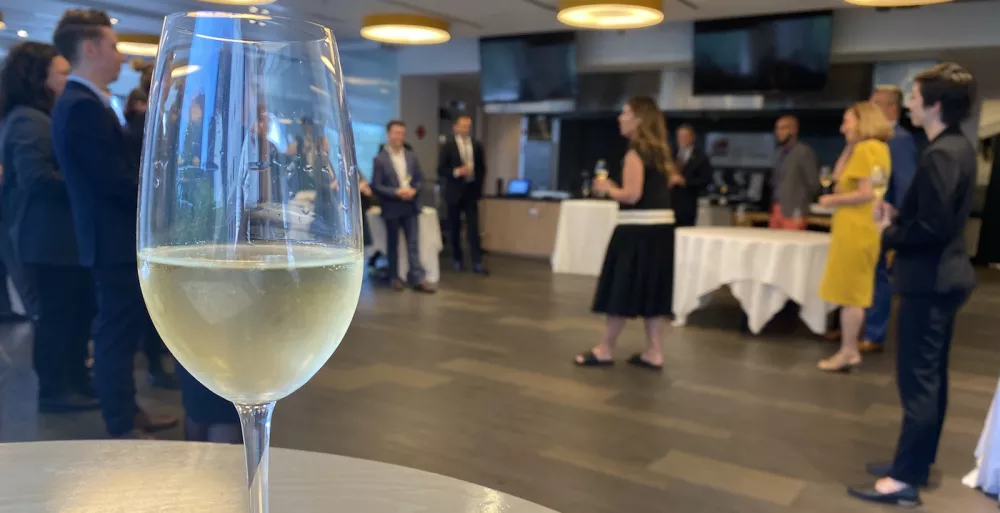The Court of Master Sommeliers and the Institute of Culinary Education co-hosted the three-part Certified Sommelier examination at our New York campus last weekend.
In collaboration with the Court of Master Sommeliers, Americas, ICE hosted the Certified Sommelier examination for the first time, at which ICE students and the general public took the second in a series of four assessments toward becoming a Master Sommelier.
ICE hosted exams for more than 50 participants on Aug. 14 and 15, including students who graduated from ICE’s Intensive Sommelier Training program, the only program in the country approved by the CMS.
There are three parts to the Certified Sommelier examination: a blind tasting, theory paper and service examination. Megan Anderson, who completed ICE’s sommelier program in July and passed this level, says she brought what she learned in class — where students analyze and evaluate more than 300 wines using the Court’s Deductive Tasting Method — to the examination.
“I really appreciate the help I had and the support from the school since the beginning,” she said. “They inspired me and now I feel really happy I have accomplished this.”
Learn more about ICE's Intensive Sommelier Training program.
“The Court works methodically and efficiently to be able to announce results at the end of the day,” said Dean of Wine Studies Scott Carney, MS, who leads the Intensive Sommelier Training program. “It allows all candidates who worked so hard to raise a glass to their efforts and network with others at the close of the event.”
Taught exclusively by master sommeliers, the 10- to 17-week course is a continuing education opportunity for students in the hospitality industry. It offers a place to try wines with peers from different backgrounds who can recognize different characteristics of wines and expand perspectives, says Andy Reed, who completed the training program in July and passed this recent exam.
“Studying independently, you're not ever really sure what to focus on,” he said. “The focus of the class, coming from someone within the court, was definitely helpful.”
Andy added that the class exposed to him to wines he otherwise would not have selected himself. “That exposure, there's no way I would've been able to pass any tasting exam without that experience,” he said.

Scott, who became New York’s second master sommelier in 1991, describes the knowledge from the classes and accompanying certification as “a package of information, and it's left up to your own imagination what you do with it.”
Megan, who says she had little wine knowledge before taking the Intensive Sommelier Training program, hopes to soon get a sommelier job at a fine-dining restaurant in New York City and then one day become a master sommelier and own her own Michelin-starred restaurant.
“The class moved my knowledge from very little to a great accomplishment within a few months,” Megan said. “I have resources that will probably help me for the next level also.”
“The community, the network is so, so important,” added Andy, who’s picked up wine knowledge since working in restaurants as a teenager and now works at Popular in the Public hotel. “Whether it's tasting groups or job opportunities, that's really what you have to lean on to be able to get exposure, experience and learn about new opportunities, new wines, whatever it is. Certainly, ICE is a big part of that, will be a big part of that.”
The Certified Sommelier examination typically asks participants about their beverage knowledge outside the world of wine. Scott says sommeliers are supposed to be "rainmakers," or talented salespersons, especially since customers sometimes want something other than wine, so it’s important to “at least be conversant” in other product categories. The classes teach students about spirits, sake, cocktails, beer and — equally important — wine program management.
Explore ICE NYC's Wine & Beverage Studies programs.




